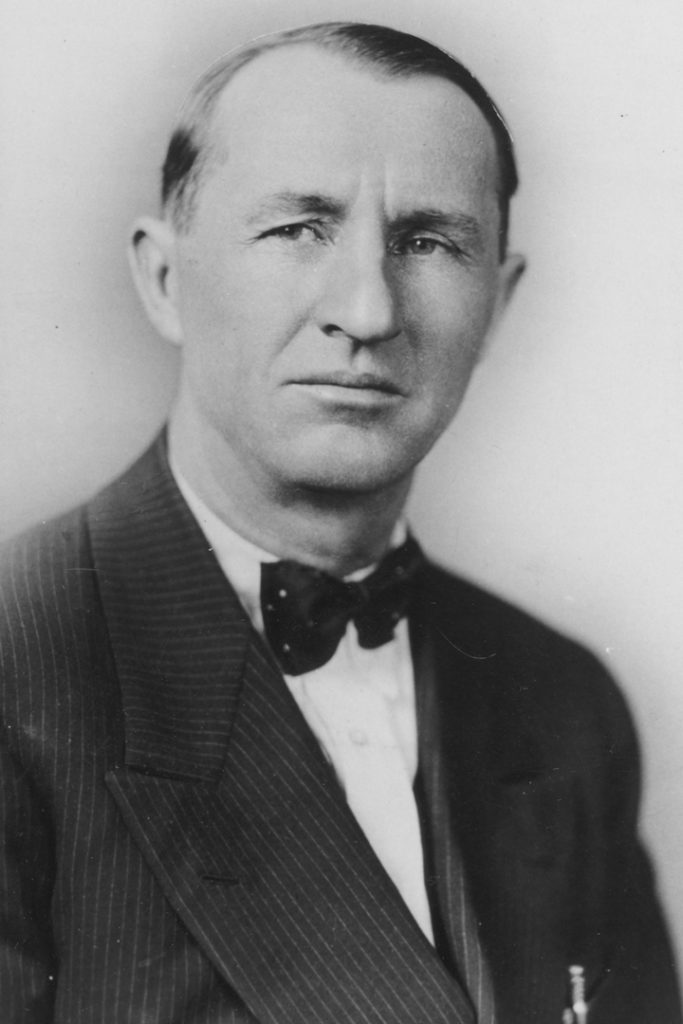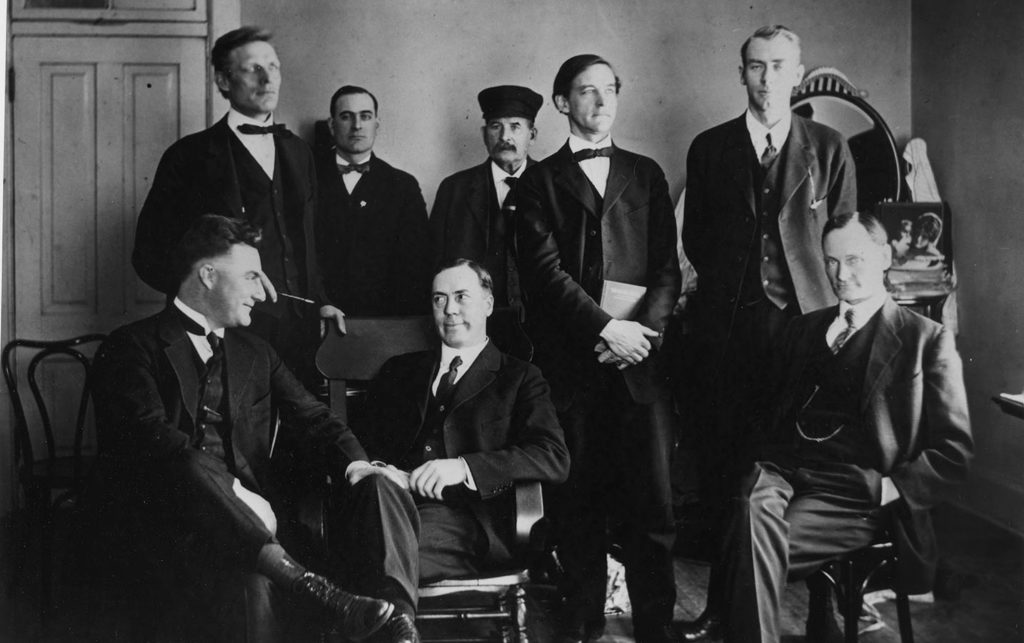
A.C. Townley was a gifted rabble rouser, a talented political strategist, and, in the opinion of many, a demagogue. He was also a genius. After plunging into a bonanza flax farm north of Beach, North Dakota, and losing everything, Townley became a field organizer for the small North Dakota Socialist Party.
The Socialists admired Townley’s talents but concluded that he was more interested in selling memberships than in Socialist ideology. He was at loose ends in February 1915 when the he visited Bismarck at the end of a contentious North Dakota legislative session, for a meeting of the Equity Society. It was then that he realized that his organizational skills, his innovative use of technology, and his capacity as a fiery stump speaker might change the face of North Dakota.
It was the failed flax farmer, agrarian rabble rouser and prairie demagogue Arthur C. Townley who conceived the Nonpartisan League, developed its unique style and sales strategy, who stirred the farmer-citizens of North Dakota to assert their collective power between 1915 and 1922. Some of the earliest thinking about a new nonpartisan pressure group came from a man named A.E. Bowen; some of the League’s program was adapted from proposals put forward by the small North Dakota Socialist Party.

Townley was a blunt, often sarcastic leader. Ideology mattered to him much less than success. He knew that the League would only succeed if it produced tens of thousands of memberships throughout North Dakota (and beyond) and only if farmers committed their hard-earned money to the cause. “Cut out all this fine stuff and get down in the manure pile with the farmer and get the money,” he advised.
Townley and the NPL promised “a New Day in North Dakota.” For a time (1916-1921) it appeared that perhaps a farmers’ utopia was possible on the northern plains. Several contemporaries and more recent historians have argued that if it had not been for World War I, the NPL would have become a viable national farmer-labor party that might have changed the course of American history. The skeptics sneered at the idea of a “New Day,” in North Dakota or elsewhere.
Of Townley, by Ray McKaig:
“I first met A.C. Townley when I was Master of the North Dakota State Grange. As he indignantly told me how the food pirates had beaten down the price of grain just when he was ready to sell I became indignant too. He became bellicose as he told how they shoved the price up after cornering the market. I became bellicose too. Then came the appeal to ‘stick together.’ Would I stick? I was so ‘het up’ by this time that I was looking around for a stick to hit a grainpit rattler. His promotive personality inspires confidence, and irresistibly makes one a crusader against economic wrongs.”
“He is rather slow in action and exceedingly deliberate in the use of words. As he commences to talk he appears to be about five foot ten; when he finishes he seems to be about ten foot five. Rather thin in appearance, he is yet strong in physical make-up. His eyes are set deep, but they match his sarcastic drawl. His hair is dark, and his nose is rather prominent. He speaks slowly and enunciates clearly; his gestures go out after you, reaching out to tear down your refusals to agree with his ideals. His voice is expressive, strong, and resonant. As irony, sarcasm or sympathy is hurled at his crowd, his voice betrays his mood before his words articulate the thought. He is one of the great native orators of America.”

